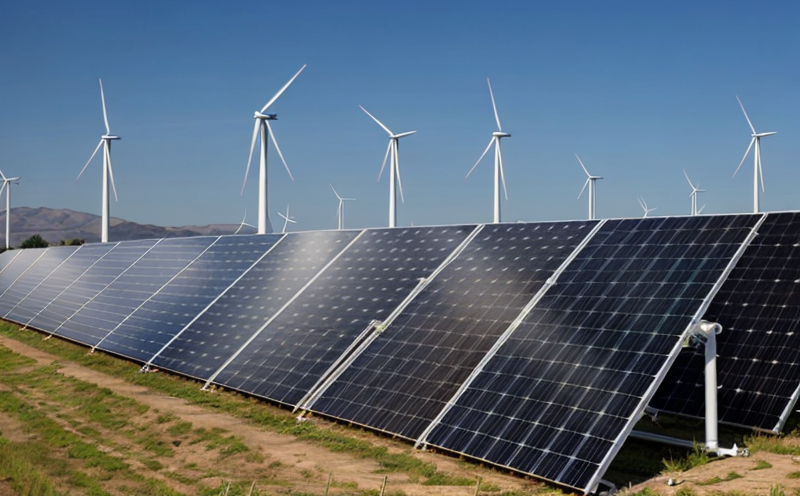EN ISO 15614 Weld Procedure Qualification Testing in Renewable Systems
The EN ISO 15614 standard is a critical component of ensuring the integrity and reliability of weld procedures used in the manufacture of renewable energy systems such as solar power plants, wind turbines, and other infrastructure. This service ensures that welding processes meet stringent quality requirements, thereby enhancing safety and performance.
Weld Procedure Qualification (WPQ) is a process designed to confirm that a specific welding procedure will produce welds that meet the required mechanical properties and integrity for their intended use in renewable energy systems. The testing involves creating test specimens using the proposed welding procedure, followed by evaluation based on predefined criteria.
In the context of renewable energy systems, WPQ is essential because these structures are often exposed to harsh environmental conditions. Ensuring that the welds can withstand these stresses is vital for the longevity and safety of such infrastructure. The standard covers various aspects including joint design, welding process parameters, consumables used in the procedure, and post-weld heat treatment.
The testing process typically includes:
- Preparation of test specimens according to specified dimensions and shape
- Application of the proposed welding technique
- Non-destructive testing (NDT) such as ultrasonic or radiographic inspection
- Destructive testing if required, involving mechanical property tests like tensile strength measurement
The acceptance criteria for a qualified weld procedure are based on the specific requirements set out in EN ISO 15614. These include:
- Visual inspection: The appearance of the weld should be acceptable.
- Non-destructive testing results: Must comply with the specified acceptance levels as per the standard.
- Destructive testing (if applicable): Mechanical properties must meet or exceed the minimum required values.
The process also involves detailed documentation, which includes:
- Description of the welding procedure
- Details of the test specimens used
- Results and interpretation of testing
- Acceptance criteria met or not
The importance of this service cannot be overstated in ensuring that renewable energy systems are constructed with reliable, safe, and durable components. This ensures compliance with international standards and regulations, which is crucial for the safety and reliability of such structures.
Applied Standards
The primary standard used in this service is EN ISO 15614:2019. This European standard specifies the requirements for the qualification of welding procedures to be used in the production of components and structures made from ferrous materials, including those intended for use in renewable energy systems.
Other relevant standards that may apply depending on the specific application include:
- EN 14085:2007 - Quality requirements for welding
- ASTM A355:2021 - Standard specification for wrought carbon and alloy steel castings intended for use in the manufacture of wind turbine components
The application of these standards ensures that all aspects of the testing process are conducted to the highest international quality standards, providing a level of assurance that is essential for the integrity of renewable energy systems.
Industry Applications
- Solar power plants: Ensuring the structural integrity of solar panels and their supporting structures.
- Tidal and wave energy devices: Guaranteeing that underwater components can withstand marine conditions.
- Wind turbines: Verifying that tower sections and blades are joined safely and reliably.
The WPQ process is crucial in all these areas as it ensures that the welding techniques used will produce reliable, safe, and durable structures. This is particularly important given the increasing reliance on renewable energy sources to reduce environmental impact.
Eurolab Advantages
- Certified Compliance: Our laboratory adheres strictly to EN ISO 15614 and other relevant standards, ensuring that our testing results are accurate and reliable.
- State-of-the-Art Facilities: Equipped with the latest NDT equipment and experienced technicians, we provide comprehensive testing services.
- Comprehensive Reporting: Detailed reports are provided for every test conducted, ensuring that all relevant data is captured and analyzed.
We pride ourselves on delivering high-quality, accurate testing results that meet the highest international standards. Our expertise in this field ensures that our clients can trust us to provide reliable information crucial for their projects.





